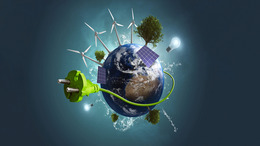Through its work, the Bertelsmann Stiftung aims to make democracy crisis-proof and sustainable. Here is an overview of our activities and priorities in this area:

Montage: © tostphoto - stock.adobe.com / © Lubo Ivanko - stock.adobe.com / Bertelsmann Stiftung
Strengthen democracy!
Democracy is coming under increasing pressure around the world. The number of autocracies is growing and democracy has suffered damage in many countries. One thing is clear: democracy must become more citizen-centred, efficient and resilient in order to be successful. And there are also many examples that offer hope.
Content
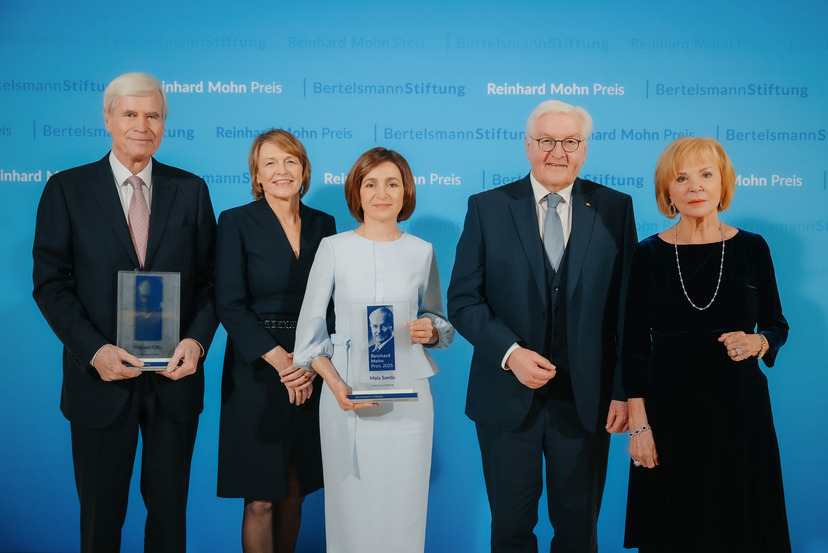
Besim Mazhiqi
After the 2025 Reinhard Mohn Prize award ceremony, Maia Sandu (center) and Michael Otto (left) are posing for a photo with Germany's Federal President Frank-Walter Steinmeier (second from the right), his spouse Elke Büdenbender (second from the left) and Liz Mohn, honorary member of the Bertelsmann Stiftung's Board of Trustees and the foundation's global representative.
Maia Sandu and Michael Otto to receive the 2025 Reinhard Mohn Prize
The Bertelsmann Stiftung has awarded the 2025 Reinhard Mohn Prize to the President of the Republic of Moldova, Maia Sandu, and to entrepreneur and philanthropist Michael Otto. In keeping with the title of this year's prize – "Strengthen democracy!" – it presented the award in recognition of both recipients' commitment to democratic values and a free society. The presentation speeches were given by Germany's Federal President Frank-Walter Steinmeier and Liz Mohn, honorary member of the Bertelsmann Stiftung's Board of Trustees and the foundation’s global representative.
According to the award citation, the two recipients have impressively demonstrated how today’s much-challenged liberal democracy can be protected, promoted and developed further through commitment and courageous leadership. Thanks to their values and actions, both recipients exemplify the theme of the Reinhard Mohn Prize: "Strengthen democracy!" While Maia Sandu fights for freedom and self-determination in the political arena, Michael Otto has dedicated himself to promoting the democratic idea and its sustainability in business and civil society.
Maia Sandu has been president of the Republic of Moldova since the end of 2020. She is the first woman to lead the country bordering Ukraine and Romania. She was elected to a second term of office at the beginning of November 2024. During the election campaign and voting process, massive attempts by Russia to prevent her re-election through manipulation, interference and the spread of disinformation were documented. Sandu has promoted Moldova’s sovereignty and EU-orientation for years, and she applied for the country's accession to the EU following the outbreak of war in Ukraine in 2022. In a public referendum in October 2024, the people of Moldova confirmed their desire to join the EU. In early 2025, the pressure from Russia increased even further when Moscow completely cut off gas supplies to the Republic of Moldova on January 15.
Michael Otto, the second recipient, was chairman of the Executive Board of the Otto Group from 1981 to 2007 and has served as chairman of its Supervisory Board since then. The Hamburg-based entrepreneur was an early advocate of environmental protection, development aid and social and educational projects. He has established several foundations, including the environmental foundation bearing his name as well as Stiftung KlimaWirtschaft. As patron and chairman of the Board of Trustees of Haus Rissen in Hamburg, he is committed to taking a contemporary approach to democracy education. He established the Michael Otto Foundation for Sustainability at the end of 2023, a further example of his desire to strengthen an open society and protect democracy while developing it further.
Pop Culture and Democracy
In June, the Bertelsmann Stiftung presented itself as an active organiser with the GenNow Space at the Kosmos Festival in Chemnitz, which attracted more than 100,000 visitors. With the GenNow Space, the foundation created an innovative space. The aim was to encourage young people to actively shape their own future. The foundation combined pop culture, social attitude and participation and brought these topics to the centre of the festival through live podcasts, gaming streams, panels and workshops. More than 30 youth organisations from the Bertelsmann Stiftung's networks and from the region were involved. With the GenNow Space, the Bertelsmann Stiftung demonstrated that it sees itself not only as a driving force, but also as an active co-creator of social transformation processes. The GenNow Space was also a prototype for future-oriented participation formats and underlines the Bertelsmann Stiftung's commitment to empowering young people and making their perspectives visible.
60 per cent of young people in Germany who feel very lonely do not believe that they can bring about political or social change. This is the result of a survey of 16- to 30-year-olds commissioned by the Bertelsmann Stiftung. Of those who do not feel lonely, 42 per cent doubt that they can make a difference with their actions . A similar picture emerges at a local level: while a third of non-lonely respondents deny their ability to change things in their city or community, more than half (52 per cent) of the very lonely do so. Trust in democratic structures is also significantly weakened among the very lonely: 63 per cent are dissatisfied with democracy in Germany, compared to 41 per cent of those who are not lonely.

© David Bärwald / Bertelsmann Stiftung
Lively discussions on the GenNow stage during the Kosmos Festival in Chemnitz in June 2025.
Shaping the Future – The Bertelsmann Stiftung Podcast
We address the topic of democracy through various channels, including our podcast “Zukunft gestalten” (Shaping the Future), where the focus is always on the question of how to get people, especially young people, excited about democracy.
Working as a member of the Bundestag is a dream job. Or is it? “Berlin was a fever dream,” says Ye-One Rhie, recalling her time as a member of parliament in the country’s capital. She loved the interactions with others and the feeling of being able to make a difference and help promote democracy. She was less enthusiastic about the difficult working conditions. In the podcast episode “Dream job or endurance test? Members of parliament talk about their work in the Bundestag,” Ye-One Rhie and democracy expert Finn Heinrich from the Bertelsmann Stiftung are joined by Malva Sucker and Jochen Arntz as they discuss the challenges faced by Germany’s political representatives. During the last legislative period, 150 parliamentarians left the Bundestag. What has gone wrong? What can be changed? What are the consequences for German society? What improvements have already been initiated?
Social media are the most important source of political information for young people – and the algorithms online sites use shape what young people see when it comes to politics. In the episode “Demokratie im Feed”(Democracy in the Feed) from the Shaping the Future podcast, Malva Sucker and Jochen Arntz discuss with Sibylle Gröbel and Kira Schrödel how platforms such as TikTok, YouTube, Instagram and X weight political content and what impact this is having on democratic discourse. The Bertelsmann Stiftung study “How to sell Democracy online (fast)” shows that algorithms often favor content from fringe political parties much more than posts from more mainstream parties.
In another episode of the podcast, Willi Weitzel talks about the importance of social participation for children and young people – and why engagement should not begin only at the age of 18. Local clubs, fire departments, sports groups and other places of communal activity serve as “social magnets” for children, showing them what it means to get involved. Weitzel notes that children’s rights and democratic education are closely linked. Allowing 16-year-olds to vote is the next logical step, he feels, since young people today have access to more sources of knowledge than ever before.
Committed to democracy: Gaming, School, Social Media
Gaming is now much more than a hobby – it’s a social space where millions of young people communicate with each other every day. The study “Spielräume für Demokratie” (Playgrounds for Democracy) shows that platforms such as Twitch, Discord and multiplayer communities are the sites of intensive social discourse. Many gamers regularly discuss political and social issues and even show a higher level of trust in democracy than the average young person. But digital spaces also bring challenges: toxic behavior, bullying, loneliness and extremist content. The study argues that gaming spaces should be seen much more as venues for political education and democratic culture.
How do children and young people learn about democracy today – and where is there room for improvement? The study “Demokratisierung des Lernens in Schule” (Democratizing Learning in Schools) shows that getting young people involved in everyday school activities can have a meaningful impact. Students who are often allowed to help make decisions develop more democratic skills, feel more effective and are more motivated to learn. All-day schools in particular offer outstanding opportunities here, as they can create significantly more space for participation. At the same time, it is clear that many German schools are still a long way from genuinely allowing young people to get involved. Teachers often have too little time, training or support. Rigid framework conditions also hinder democratic processes. The study therefore recommends offering targeted training, giving schools more freedom to shape their own programs, and setting clear political priorities in order to anchor democracy education in schools in the long term.
Today, young people mainly get their information about political issues from social media – far more often than from school, traditional media or their family. The study “How to sell Democracy online (fast)” shows how crucial platforms such as Instagram, TikTok and YouTube have become for shaping political opinion. Interestingly, political influencers enjoy significantly more trust than political parties, government agencies or the media. The study’s analysis shows that content is perceived much more favorably if it takes young people’s lives seriously and offers authentic insights. Topics such as migration, climate, education and social justice resonate particularly strongly – but are often not addressed by policymakers in a way that appeals to young people.
How does the Bundestag function from the perspective of those who are no longer members? A study conducted by the Bertelsmann Stiftung, which surveyed 30 former members of Germany’s parliament, clearly shows that many structural and organizational challenges are making the legislative body less productive. Topics that the interviewees frequently mentioned include excessively long weeks, last-minute scheduling and a hard-to-plan work rhythm that is not family- or health-friendly. Other issues mentioned are the use of outdated digital processes and a political culture that does not fully embrace modern leadership skills. The Bundestag members who were surveyed say the way the legislative body conducts its business requires a thorough overhaul and the implementation of numerous changes – from consistent digitalization and reliable working hours to stronger powers of control over the executive branch. The goal is to create a parliament that remains effective in times of crisis, offers elected officials better protection and can become more attractive to future generations.
Topic launch with German Chancellor Olaf Scholz
The Bertelsmann Stiftung presented its annual topic for 2024 and 2025 – "Strengthen democracy!" – on March 18, 2024 in Berlin, with Olaf Scholz as its most prominent guest. The federal chancellor called on the country’s citizens to do their democratic duty and shape the future confidently, saying: "Democracy – that’s us."
Combatting disinformation
Disinformation and deliberately disseminated falsehoods are among the greatest threats to democracy. In Germany as elsewhere, people view targeted disinformation as a danger for democracy – as our study "Disconcerted Public" shows. According to the survey carried out for the study, 81 percent of respondents say that disinformation jeopardizes democracy.
There is also widespread awareness of the problem at the European level, as another Bertelsmann Stiftung survey makes clear. According to the study, one respondent in two (54 percent) is often or very often unsure if the information they find on the Internet is true.
But how can we become more resilient against disinformation campaigns in social media?
Forum Against Fakes – Together for a Strong Democracy ran an online campaign to explain to people what the dangers of disinformation are. Everyone in Germany was invited to participate at www.forum-gegen-fakes.de. The submitted suggestions were compiled by a citizens’ council, then presented to policymakers. An overview is available here. In the end, 424,000 people took part and 28 practical proposals were presented to Federal Minister of the Interior Nancy Faeser.
Disinformation is a global phenomenon. At a time when many Western democracies are struggling to overcome the influence of the far right, we would do well to learn from countries and regions that have extensive experience remaining resilient. Our international research and reports from every continent provide insight.
The Bertelsmann Stiftung’s Transformation Index
The quality of democracy in developing and transition countries has steadily deteriorated over the past twenty years. Today, there are only 63 democracies compared to a majority of 74 autocracies - this is shown by the latest figures from the Bertelsmann Stiftung's Transformation Index (BTI). For the tenth time, the BTI is analyzing developments in governance in 137 developing and transition countries.
Learn more: How to halt democracy erosion (bertelsmann-stiftung.de)
Sustainable Governance Indicators
What the BTI documents for developing and transition countries, our Sustainable Governance Indicators (SGI) do for the 41 EU and OECD states. The Scandinavian countries generally perform well when it comes to sustainable good governance.
Based on the new data set, we compared Germany, the UK, Norway and Denmark in terms of how far the countries have come in terms of the energy transition. Norway is ahead but, like the other countries, still has some homework to do.
A shifting geopolitical landscape, sluggish growth, digital transformation, the climate crisis and accelerating demographic change are testing the capacity of OECD and EU countries to innovate and adapt like never before. Denmark, Finland, Sweden and Norway are among the best positioned. But the analysis of 144 indicators from the Bertelsmann Stiftung's Sustainable Governance Indicators (SGI) reveals a troubling pattern: most advanced economies are still not adequately equipped to deliver sustainable policy.
Democracy in the preschool - with Leon and Jelena
Even the youngest children can learn what democracy means. Three to six-year-olds can acquire democratic skills and become acquainted with social engagement and participation. The Bertelsmann Stiftung was so convinced of this that it launched the "Leon and Jelena" children’s book series in 2014. Accompanied by a practical guide, 17 picture books now teach children how rewarding it is to take responsibility and contribute their ideas to group discussions. In short, for 10 years, Leon and Jelena have been teaching preschool children a great deal – including what it means to grow up in a democracy.
Focus on Europe
The closure of the United States Agency for International Development (USAID) in 2025 has changed the international development landscape and marks a strategic turning point for Europe, according to the article “After USAID: Europe’s Moment to Lead.” Without USAID, the Western Balkans and the Eastern Partnership will face significant gaps in democracy support, civic resilience and institutional capacity. Europe should view this development not as a temporary disruption, but as a long-term strategic challenge. Since it is likely that US support for democracy and governance will permanently decrease, Europe must realign its own strategies accordingly. A coordinated “Team Europe” approach – pooled resources from the EU, national governments and philanthropic institutions – could overcome the political and operational fragmentation. Europe should therefore focus on strengthening democratic resilience through long-term support for independent media, civic networks and watchdog organizations.
Europe is at a critical junction in its technological development and must become more preemptive if it wants to compete globally in the digital arena, a situation analyzed in the policy brief “From Reaction to Proactive Strategy: A Playbook for a Phased Approach towards European Technological Agency.” What is needed is a roadmap that combines short-, medium- and long-term measures. The goal is to develop genuine European technological agency and resilience – through cooperation among member states and partnerships with the private sector. In the short term (“now”), the necessary foundations must be laid, for example to bring technical expertise to public institutions, secure a strategic knowledge base and analyze critical dependencies. In the medium term (“tomorrow”), the focus should be on investing in research, upskilling small and medium-sized enterprises and promoting joint programs. In the long term (“day after”), the goals should include major initiatives such as European “moonshot” programs designed to attract talent and consolidate technological leadership.
Following the tensions of the Brexit period, Germany and the United Kingdom are creating a closer, more strategic partnership that goes beyond superficial relations, a development examined in the article “What Can Revamped Anglo-German Relations Achieve for Europe?” This rapprochement encompasses the areas of security/defense and energy, where both countries have established institutional structures and cooperation mechanisms. The partnership is reflected in new bilateral agreements designed to strengthen joint capacities, defense projects and industrial integration. Translating this political rapprochement into real defense and security capabilities remains a challenge, as Europe as a whole produces too slowly and in a fragmented manner. Beyond defense, cooperation in the field of renewable energies is growing, particularly with regard to wind and hydrogen projects in the North Sea region. Bilateral cooperation can complement but cannot replace EU structures, as the latter often set the legal framework within which cooperation is possible. Overall, the renewed German-British momentum can strengthen Europe by building capacity, accelerating the energy transformation and easing EU-UK frictions.
From Washington: Activities of the Bertelsmann Foundation
#StrengtheningDemocracy across the Atlantic: Our colleagues at the Bertelsmann Foundation in Washington have published a series of articles on the election in the US, while the podcast “How to fix Democracy,” examines the state of democratic governance. The foundation’s Transatlantic Barometer provides comparative analyses of the strengths and weaknesses of countries on both sides of the Atlantic.
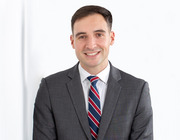
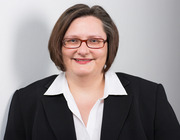
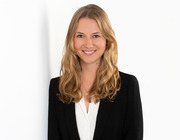
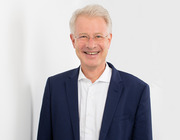
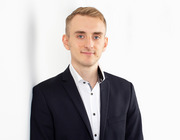


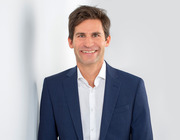

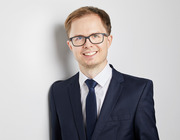

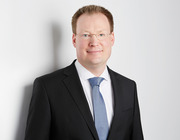
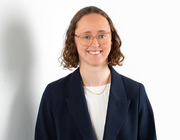
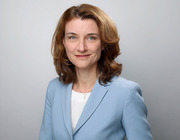
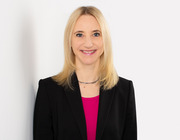

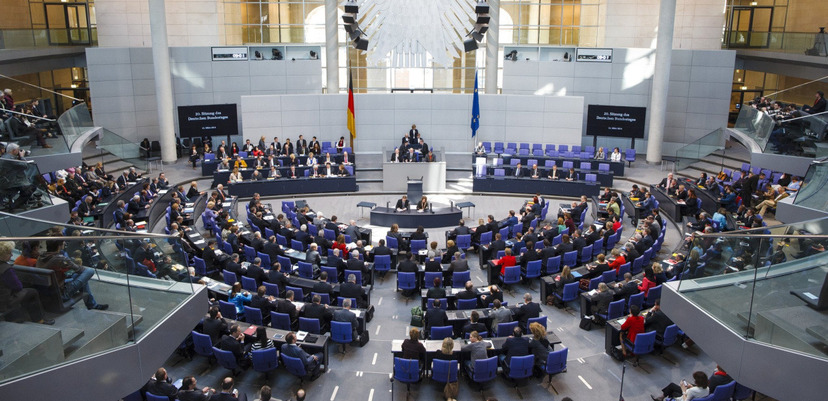
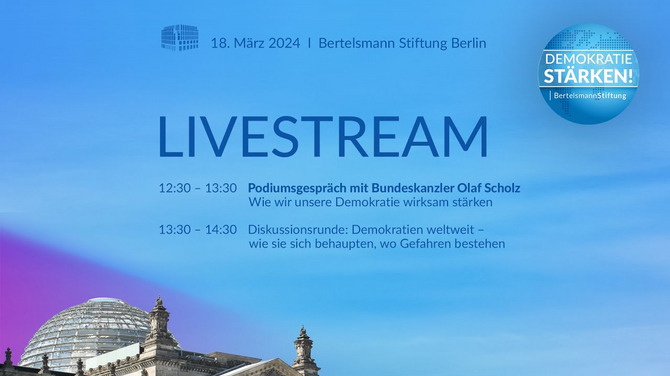
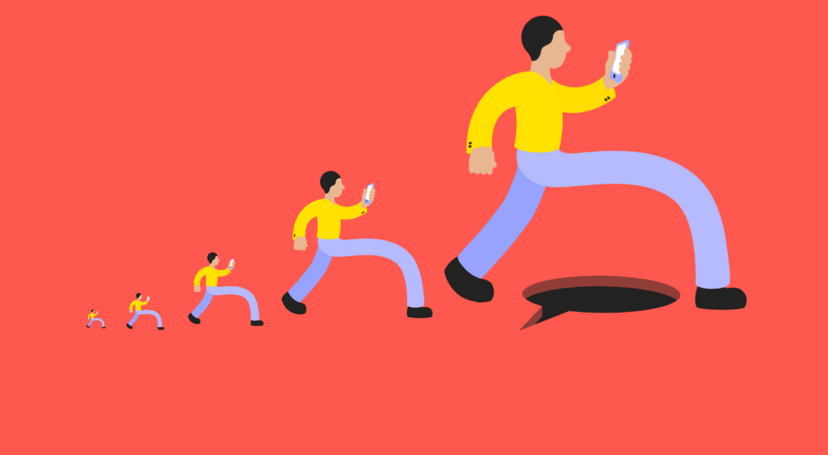
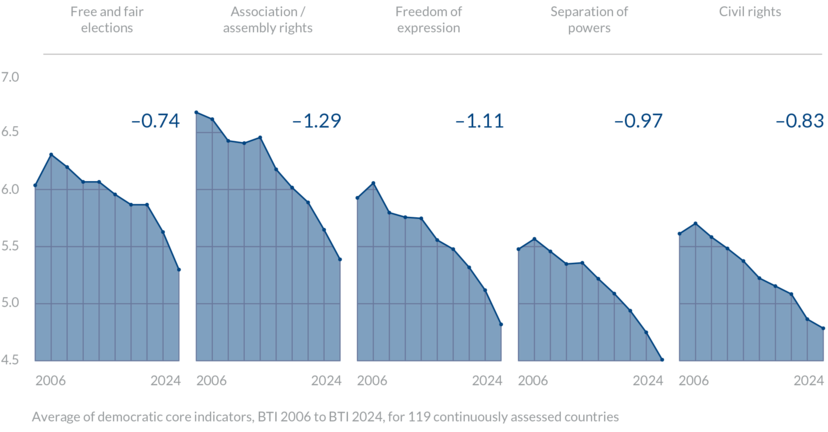
![[Translate to English:] viele Fragezeichen liegen übereinander. Auf der rechten Seite sticht ein rotes Fragezechen hervor.](/fileadmin/files/_processed_/c/2/csm_AdobeStock_204180371_KONZERN_ST-DZ_08_875fcc023d.jpg)
